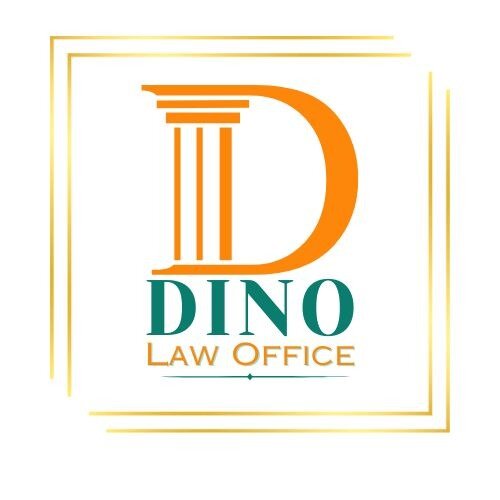Best Data Center & Digital Infrastructure Lawyers in Makati City
Share your needs with us, get contacted by law firms.
Free. Takes 2 min.
List of the best lawyers in Makati City, Philippines
About Data Center & Digital Infrastructure Law in Makati City, Philippines
Makati City is a major financial and business hub in the Philippines and serves as the heart of Metro Manila’s central business district. With rising digital transformation, the demand for data centers and robust digital infrastructure has surged, making Makati a focal point for information technology and telecommunications industries. Data center and digital infrastructure law refers to the legal frameworks that oversee the establishment, operation, management, and protection of data facilities and related digital assets. This includes regulatory compliance on data privacy, environment, real estate, cybersecurity, and telecommunications, all of which are essential for enterprises operating or investing in Makati's urban environment.
Why You May Need a Lawyer
Legal assistance is often crucial in dealings related to data center and digital infrastructure in Makati City for several reasons. Anyone planning to build, buy, lease, or operate a data center may face complicated requirements regarding permits, environmental standards, and compliance with both national and local regulations. Businesses might also need help with:
- Negotiating property and tenancy agreements for data center locations
- Securing government approvals and understanding regulatory requirements
- Navigating complex contracts with service providers, clients, and vendors
- Addressing data privacy, personal information protection, and cybersecurity standards
- Resolving disputes regarding power supply, connectivity, or service downtimes
- Compliance with environmental and building codes specific to Makati
- Understanding tax incentives or special economic zone regulations if applicable
A lawyer with expertise in this field can ensure your operations are legally protected and compliant, minimize risks, and help resolve any legal disputes that may arise.
Local Laws Overview
Several laws and regulations directly affect data center and digital infrastructure projects in Makati City:
- Data Privacy Act of 2012 (Republic Act No. 10173) - Sets standards for personal data collection, storage, and processing, directly impacting data centers.
- National Building Code (Presidential Decree No. 1096) - Governs construction, occupancy, and safety requirements for data center facilities.
- Clean Air Act and Environmental Compliance - Requires environmental permits, especially for facilities with large generators or cooling systems.
- Local Government Permits and Zoning - Makati City enforces its own ordinances for zoning, business permits, and special safety requirements.
- Cybercrime Prevention Act of 2012 (Republic Act No. 10175) - Imposes obligations on data center operators concerning cybersecurity.
- Telecommunications Regulation - National Telecommunications Commission (NTC) regulates licensing for connectivity and service delivery.
- Fire Code of the Philippines - Requires strict adherence to safety standards including for high-power and sensitive electronic installations.
These laws operate alongside other industry-specific rules, international standards, and contracts that may be relevant depending on the nature of your data center or digital infrastructure project.
Frequently Asked Questions
What permits do I need to build a data center in Makati City?
You typically need a business permit, building permit, environmental clearance, fire safety inspection certificate, and potentially others depending on your facility’s size and operations. Local ordinances in Makati may also require neighborhood or barangay clearances.
Are data centers in Makati subject to the Data Privacy Act?
Yes, data centers storing or processing personal information must comply with the Data Privacy Act of 2012, which mandates security controls and notification protocols for data breaches.
Can foreign entities own and operate data centers in Makati?
Foreign entities can own and operate data centers but may face restrictions regarding land ownership and must comply with foreign investment and corporate registration laws. They often set up Philippine subsidiaries or joint ventures.
What are the typical environmental requirements?
Environmental requirements include obtaining an Environmental Compliance Certificate, proper waste management, noise controls, and adherence to the Clean Air Act, especially for backup generators and HVAC systems.
Are there specific cybersecurity laws for data centers?
While the Data Privacy Act and the Cybercrime Prevention Act impose requirements, data center operators are expected to implement robust cybersecurity measures, report incidents, and prevent unauthorized access to systems.
What are the challenges regarding power and utilities in Makati?
Power reliability can be an issue, so facilities often require backup generators and redundancy. Legal disputes may arise around utility rights, service delivery, or compliance with utility regulations.
How do I resolve a dispute with a service provider or client?
Disputes are commonly resolved through negotiation, mediation, or arbitration. Contracts should specify the mode of dispute resolution. Litigation in local courts is also an option, but may be more time consuming.
What are the zoning rules for data centers?
Zoning rules in Makati determine where data centers can be established. The city’s Zoning Office provides details and issues permits in line with the local Comprehensive Land Use Plan.
Does Makati offer incentives for digital infrastructure projects?
Some incentives may be available, especially if the project is registered with the Philippine Economic Zone Authority or Board of Investments. These can include tax holidays or other fiscal incentives.
Can my data center process data for overseas clients?
Yes, subject to compliance with both local laws and the data protection laws of client jurisdictions. Cross-border data transfers may require additional controls and contractual arrangements.
Additional Resources
If you need more guidance or regulatory information, the following agencies and organizations can help:
- National Privacy Commission (NPC) - Oversees data privacy and personal information compliance
- Makati City Business Permits and Licensing Office - Issues local permits and provides regulatory guidance
- Department of Information and Communications Technology (DICT) - Directs national ICT policies and standards
- National Telecommunications Commission (NTC) - Regulates telecommunications and internet services
- Philippine Economic Zone Authority (PEZA) - Handles special economic zone incentives
- Board of Investments (BOI) - Provides information on investment incentives for ICT projects
- Integrated Bar of the Philippines - For finding practicing attorneys in Makati experienced in ICT and infrastructure law
Next Steps
If you are considering building, operating, or investing in data centers and digital infrastructure in Makati City, it is best to consult a lawyer with expertise in commercial, real estate, environmental, and information technology law. A lawyer can help you:
- Review your business plan and ensure legal compliance
- Identify permits and licenses you need
- Draft and negotiate contracts and service level agreements
- Resolve regulatory, property, and contractual disputes
- Implement robust data protection and cybersecurity measures
Start by gathering information about your project and the properties or services involved, then reach out to a qualified legal professional in Makati. Document your legal questions and business objectives ahead of your consultation. This ensures your discussions remain focused, productive, and helps you achieve legal certainty for your data center or digital infrastructure endeavors.
Lawzana helps you find the best lawyers and law firms in Makati City through a curated and pre-screened list of qualified legal professionals. Our platform offers rankings and detailed profiles of attorneys and law firms, allowing you to compare based on practice areas, including Data Center & Digital Infrastructure, experience, and client feedback.
Each profile includes a description of the firm's areas of practice, client reviews, team members and partners, year of establishment, spoken languages, office locations, contact information, social media presence, and any published articles or resources. Most firms on our platform speak English and are experienced in both local and international legal matters.
Get a quote from top-rated law firms in Makati City, Philippines — quickly, securely, and without unnecessary hassle.
Disclaimer:
The information provided on this page is for general informational purposes only and does not constitute legal advice. While we strive to ensure the accuracy and relevance of the content, legal information may change over time, and interpretations of the law can vary. You should always consult with a qualified legal professional for advice specific to your situation.
We disclaim all liability for actions taken or not taken based on the content of this page. If you believe any information is incorrect or outdated, please contact us, and we will review and update it where appropriate.












